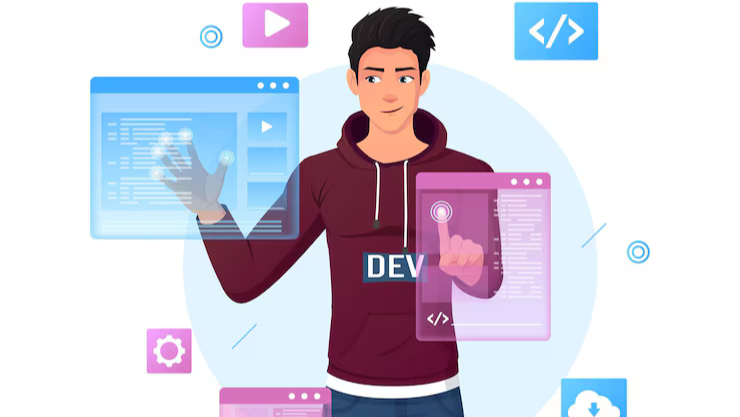
Whether you’re just getting started in web development or trying to figure out what path to follow, understanding the difference between front-end and back-end development is essential. These two parts of a website work together to create everything you see and use online. In this blog post, we’ll break down both roles, their technologies, responsibilities, and how they fit into a complete web project.
🔹 What is Front-End Development?
Front-end development (also known as client-side development) is all about what users see and interact with on a website. Think of it as the “design” and “functionality” side that lives in the browser.
💻 Key Technologies Used:
• HTML – For structure (the skeleton of the webpage)
• CSS – For styling (colors, layout, fonts, spacing)
• JavaScript – For interactivity (sliders, popups, buttons that react to clicks)
👨💻 Front-End Developer Responsibilities:
Building responsive layouts
- Making websites mobile-friendly
- Ensuring smooth user experiences
- Working with designers to bring UI/UX to life
🔹 What is Back-End Development?
Back-end development (also called server-side development) handles everything behind the scenes. It’s what powers the website, stores and retrieves data, and keeps things running smoothly.
🧠 Key Technologies Used:
• Programming Languages like PHP, Python, Node.js, Java
• Databases like MySQL, MongoDB, PostgreSQL
• Servers and frameworks (e.g., Express.js, Laravel)
🔐 Back-End Developer Responsibilities:
Building and managing databases
- Creating APIs
- Handling user authentication and security
- Writing logic for features like search, login, and payment
🔄 How Front-End and Back-End Work Together
Let’s say you’re visiting an online store:
- The front-end shows you product listings, search bars, and buttons.
- When you click “Buy Now,” the back-end processes your order, saves it in the database, and responds with confirmation.
- The full-stack developer? They can build and manage both sides!
🛠 Which One Should You Learn First?
If you’re new and love design or visual work → Start with front-end (HTML, CSS, JavaScript).
If you’re into logic, problem-solving, or data → Back-end may be your thing.
But honestly? Most jobs today love developers who understand both, even if you specialize in one. That’s what makes full-stack developers in demand.
👨💼 Bonus Tip from Zain Irshad
“When I started my journey in web development, I was confused about what to focus on. Understanding the difference between front-end and back-end helped me choose the right projects and build a balanced portfolio. Now, I enjoy working on both sides—and it’s opened more doors for internships, freelance gigs, and clients.”
Final Thoughts
Whether you choose front-end or back-end, the important thing is to start, keep building, and stay curious. Web development is a vast field, but once you know how the pieces connect, you’ll be ready to create awesome digital experiences.
